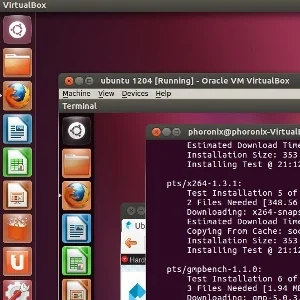QEMU 7.1 Released With LoongArch Support, Zero-Copy-Send Migration

Among the changes to find with the new QEMU 7.1 include supporting LoongArch 64-bit as a new CPU architecture, many new RISC-V extensions being supported, supporting new Arm CPU features, and much more. The QEMU 7.1 highlights include:
- Initial support for the LoongArch 64-bit architecture. This LoongArch64 target is designed to match the Loongson 3A5000 SoC and Loongson 7A1000 host bridge.
- QEMU 7.1 for RISC-V adds support for the 1.12 privileged spec, improved RISC-V Vector extension support, and also adding a variety of other extensions: Zbkb, Zbkc, Zbkx, Zknd/Zkne, Zknh, Zksed/Zksh, Zkr, Sdtrig, and Zmmul. There are also many RISC-V fixes and other improvements.
- QEMU 7.1 for x86 adds support for Architecural LBRs on KVM Virtual Machines.
- Support for emulating many more Arm CPU architecture features from Scalable Matrix Extensions (SME) to various other newer features. QEMU for Arm also now supports emulated CPU types of the Cortex-A76 and Neoverse-N1.
- The deprecated Icelake-Client CPU model has been removed for not existing in the real-world as this model is configured.
- Experimental support for exposing emulated PCI devices over the new VFIO-user protocol.
- Support for zero-copy-send for QEMU on Linux to reduce CPU usage on the source host while migrating of virtual machines.
- QEMU's guest agent code has improved Solaris support and other reporting improvements.
The full list of changes for QEMU 7.1 can be found via the project's Wiki. QEMU 7.1 can be downloaded from QEMU.org.
Add A Comment

